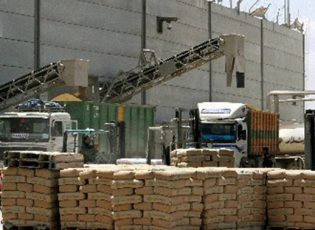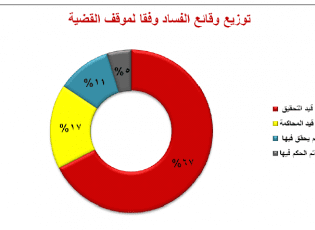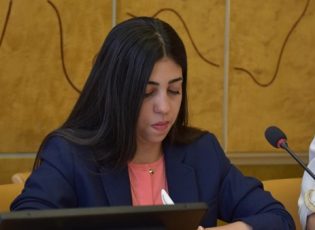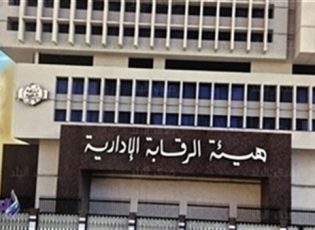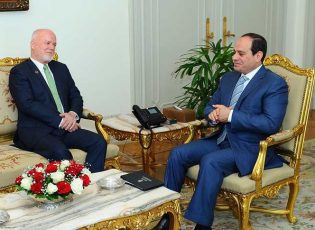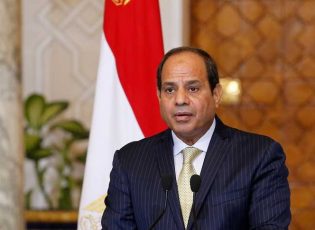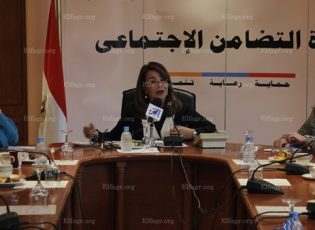The report of an oversight committee formed by the Governor of Beni Suef, Eng. Sherif Habib, revealed that the executive bodies had begun to establish the six industrial zones (Kom Abu Rady, Bayad Al-Arab, 1-31, 2-31, 3-31, and 4-31), without comprehensive plans and studies for the structure Infrastructure from the departments of investment and industrial zones.
The report of the committee set up by the governor headed by Eng. Nasser Muhammad Faraj, Director General of Roads, Eng. Noha Khater, Director General of Urban Planning in the Governorate, and the membership of 8 others, accused road officials of wasting public money, for carrying out paving works for the area's roads before the construction of the basic facilities, which threatens to re-pavement. The report, from which Al-Masry Al-Youm obtained a copy, indicated that 185 million pounds were spent on paving from 2009 to 2015.
The report emphasized the lack of a comprehensive study of the infrastructure of the Industrial Zone 2/31, warning that the work without a plan may lead to business problems when implementing the facilities.
He pointed out that the area that includes the violations witnessed the start of road works without looking at the rest of the facilities, which threatens to re-pavement when extending the facilities, or break the pavement during the construction work of factories.
The report added that construction work was assigned by direct order to the Arab Contractors Company on May 21, 2009, with 10 million pounds by Resolution No. 5 of 2009, and the amount was increased to 115 million pounds by Ministerial Resolution No. 4 of 2010 and then to 185 million pounds with the approval of the Council of Ministers on October 19, 2014. A protocol was signed between the governorate and the executive body for industrial and mining projects of the Ministry of Trade and Industry, through which it carries out all engineering and consultancy work.
He pointed out that the site was received on August 18, 2009 to start the implementation, and the works began on November 11, 2009, and 7 payments were spent for implementation work amounting to 136.95 million pounds, while the value of the executed works according to the abstracts submitted by the executive body, until June 18 last. 112,188 million pounds, and about 24.75 million pounds remaining with the Arab Contractors Company.
The report added that despite the text of the contracts concluded with the company that a committee will be established to determine the prices of each stage, only 3 price-setting committees were formed, despite the existence of 7 stages, pointing out that all the follow-up reports were signed by one engineer, which may affect negatively. The quality of work and poor follow-up indicates the shortage of staff working in the supervision apparatus.
The supervisory committee confirmed that it had detected defective parts (land and erosion) from the curbstone works, and the existence of parts of the island in need of backfilling work to preserve them, and that there are large quantities of "taxi" works that are vulnerable to damage during the work of the infrastructure facilities.
The committee called for re-examining prices with the knowledge of the Price Analysis Committee, and holding the supervising body accountable for its shortcomings, and stressed the need to hold officials in charge of investment management in the region, district managers and the supervising body accountable for their failure to plan and coordinate the preparation of full studies of utility works, as the implementation of road works before the presence of utility plans may expose what It is implemented from these methods to damage, and the report warned of a disaster if the area is used without a full study of the sewage system, as happened in the industrial zone in Bayad Al-Arab.
The report also accused the investment departments and the Industrial Zone 2/31 of negligence for not following up the implementation of the works with the executive body in its capacity as the department responsible for the zone, and recommended forming a committee headed by the Director of Urban Planning, to follow up the construction.
He stressed the need for the executive body of the General Authority for the Implementation of Industrial and Mining Projects to assign a full supervisory body to the works, and to provide the governorate with the names of the supervising body that submits monthly reports on the progress of business in conjunction with the Investment and Industrial Zones Department and present them to the committee.The summary
Short link: https://pfort.org/en/?p=857


